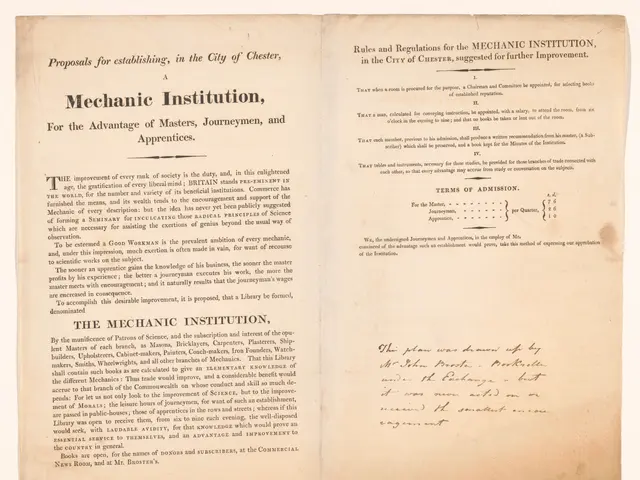Breaking: Europe Faces Potential Production Halt due to Chinese Rare Earth Export Restrictions
Production concerns mount at VDA, potential decrease in output evident
It's a nail-biting situation for the automotive sector, as China's tightened rare earth export restrictions pose a serious threat to production, warns VDA, Germany's automotive association. Hildegard Müller, VDA President, stated that these restrictions pose a severe challenge to supply security. Speaking to Reuters news agency, she pointed out that China has been issued insufficient export licenses and the customs clearance process for valid licenses is sluggish, potentially causing production delays and potential halts.
This alarming development follows an earlier warning by the Alliance for Automotive Innovation in the U.S. on May 9, 2025, about potential production disruptions due to the same issue. China, the global heavyweight in rare earth production, imposes export restrictions on key raw materials such as samarium, gadolinium, terbium, dysprosium, lutetium, scandium, and yttrium, used in electric motor magnets and sensors, in response to the ongoing trade dispute with the U.S.
Chinese producers are required to apply for new licenses for each contract with overseas companies, a measure primarily targeted at the U.S., but affecting global customers alike. The VDA is urging the German government and the EU Commission to escalate this matter promptly with the Chinese government and find an expedient solution.
Industries worldwide are feeling the heat of this supply crunch, with the automotive sector taking a significant hit. European auto suppliers have already closed plants due to the supply shortage, and urgent meetings with Chinese officials are being scheduled to expedite stalled export licenses. The restrictions are causing supply chain shortages, impacting defense infrastructure, smartphone production, aerospace components, and other high-tech goods.
Diplomats and industry executives from India, Japan, and Europe are working tirelessly to resolve the issue, as European companies contemplate halting production due to the lack of essential materials. China's dominance in rare earth production (60% of global production and 90% of refining capacity) gives it considerable sway in the global market, intensifying the geopolitical implications of this tense situation. The reliance of global industries on Chinese REEs underscores the need for alternate supply chains to mitigate future disruptions.
[1] REUTERS, "China to tighten rare earth exports," April 2025[2] Bloomberg, "European Auto Suppliers Shut Plants Amid Chinese Rare Earth Export Restrictions," May 2025[3] CNBC, "China's Rare Earth Export Restrictions Threaten Global Supply Chains," May 2025[4] The Guardian, "The Geopolitics of Rare Earths: China's Control and Global Dependence," March 2025
[1] The community policy should ramp up dialogue with China to address the tightened rare earth export restrictions, as the prolonged situation threatens to halt production in small and medium-sized undertakings within the European industry, particularly in the automotive sector.
[2] Financial institutions must consider alternative investment opportunities in energy-related projects, as the continued disruption in the supply of rare earth elements could stifle the growth of small and medium-sized undertakings within the European aerospace industry due to the reliance on these elements for critical components.








